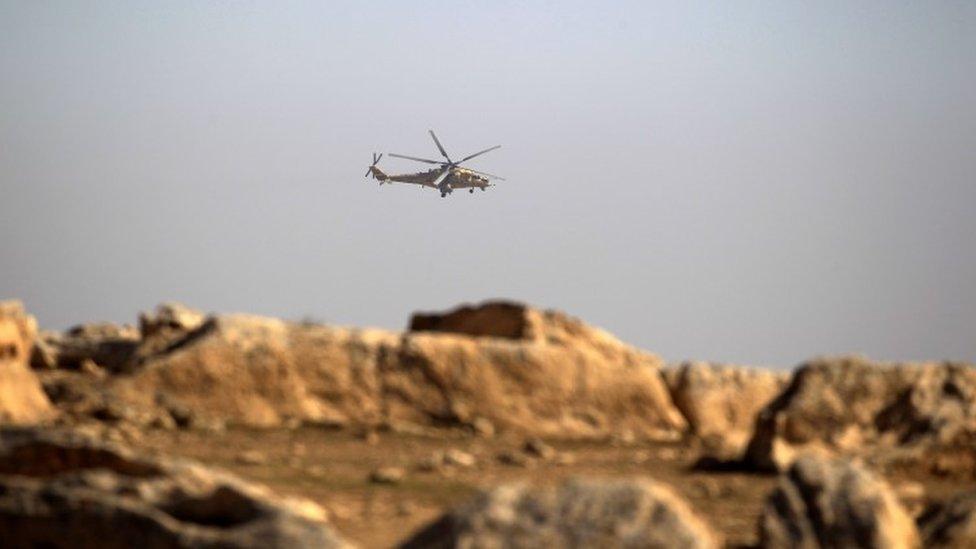Joining IS 'not glamorous', says major general
- Published
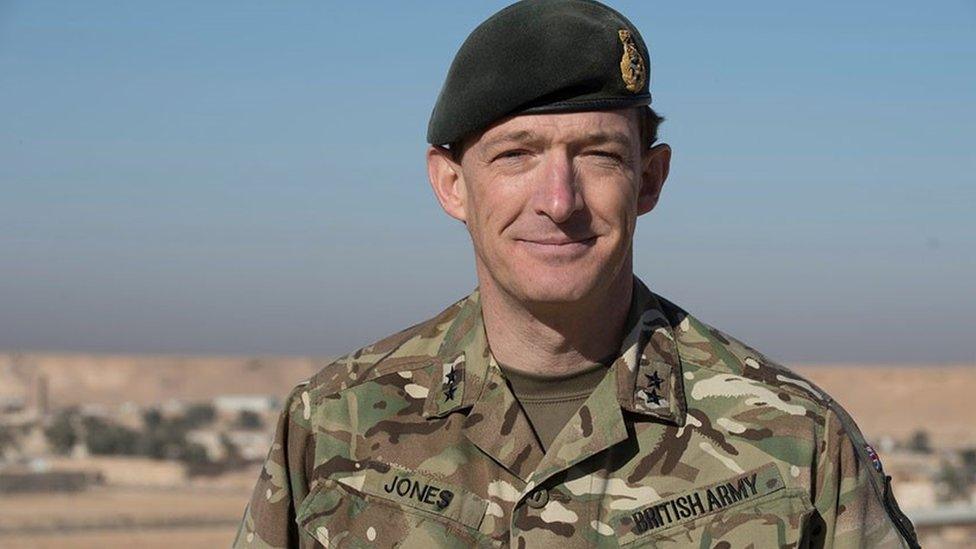
Joining the so-called Islamic State is "no longer glamorous", according to the UK's deputy commander fighting the group in Iraq.
Maj Gen Rupert Jones said the group has undermined its own credibility among locals in Iraq and Syria through its "brutal and evil" practices and harsh regime.
He said that rather than convincing people to join its ranks, it has had the opposite effect and is making people determined to fight the group.
The major general has spent time answering some questions from the BBC audience.
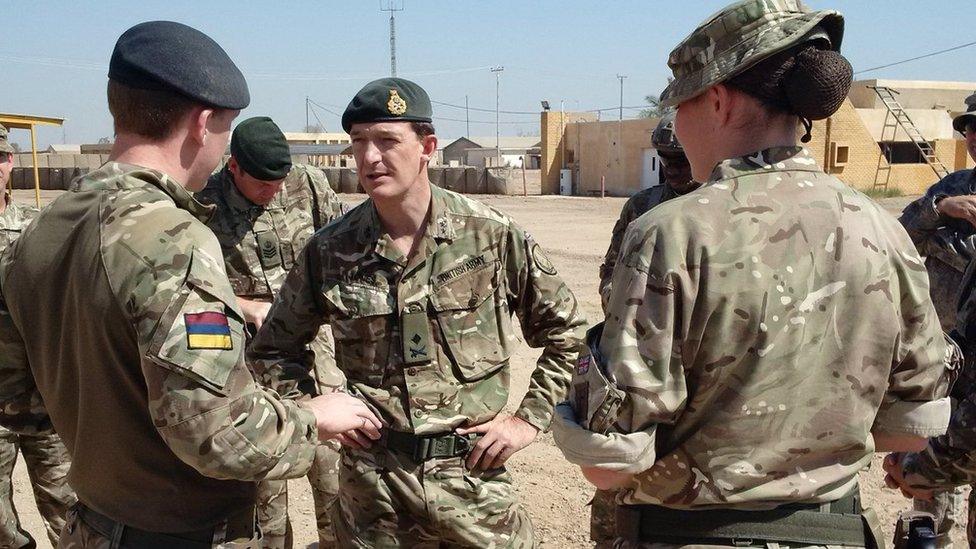
Maj Gen Rupert Jones visits troops delivering essential training to Iraqi security forces
'Not glamorous'
"The group can no longer attract new recruits and sell their story as a glamorous one," said Maj Gen Jones, who was in London this week to meet with representatives from 38 countries that are part of the Global Coalition against Daesh.
He is confident the group will lose on the battlefield and ideologically.
"We've made enormous progress so far," he said. "The coalition is working on unravelling the Daesh [IS] ideology and exposing the group for what it is."
"Civilians recognise what Daesh is doing and they reject their brutality.
"It's just not glamorous to come and fight for Daesh, where you are likely to be killed by your fellow fighters because you owned a mobile phone you shouldn't have had and end up being beheaded for it."
He added that people in the region are looking out for "peace, tolerance and humanity and the rejection of the IS story makes the coalition's position against the group very powerful".

'Comprehensive plan'
We asked readers to send Maj Gen Jones their questions on the Mosul offensive.
Carl asked: "How do you plan to use the momentum gained from capturing Mosul to take the next steps towards destroying IS completely?"
Carl explained to us the thinking behind his question.
"We are continuously told about this 'comprehensive' plan to defeat IS. I would like to know how this potential victory in Mosul will translate into further gains elsewhere. I want to know if the victory on the ground will lead to IS being pushed out of Iraq. I also want to know if the the coalition will maintain their initiative and keep pushing to keep IS stressed and on the defensive."
On the ground, the Mosul offensive is giving drive to anti-IS forces in the rest of Iraq and in Syria.
"We are not only attacking in Iraq, but our partners will shortly attack into the heart of Raqqa, the capital of the so-called 'caliphate' in Syria. Raqqa has been isolated as we speak," said Maj Gen Jones.
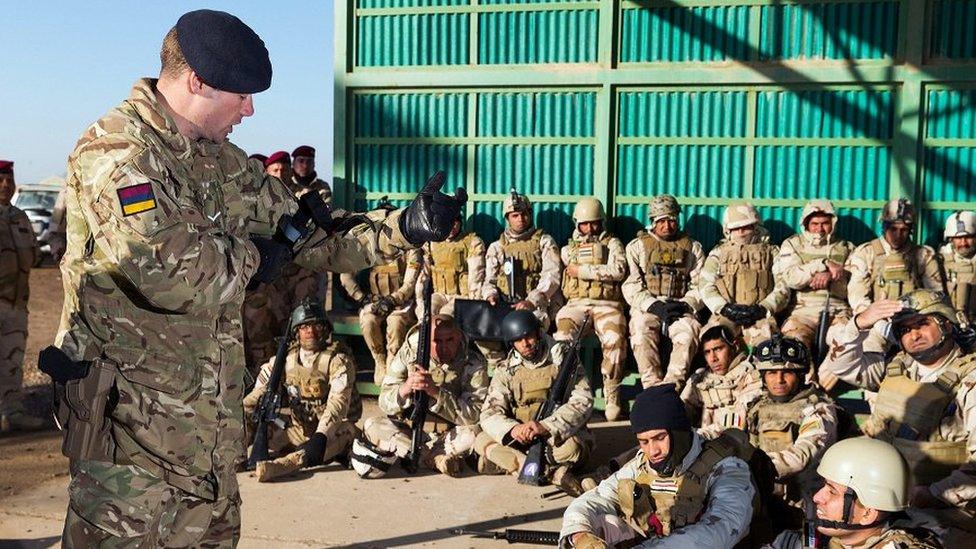
A British Army medic in Erbil shows Iraqi troops how to correctly apply a tourniquet
As it has been several months since the offensive was started, the timeframe of the operation was a talking point among some BBC audience members.
Tom Hickman asked why the capture of Mosul is taking such a long time, considering the coalition's overwhelming superiority in firepower especially in the air.
However, the Maj Gen affirmed that the operation is moving according to plan.
"It took 100 days to retake the east of Mosul and the battle for the west has only started," he explained.
"Any military force in the world would take time to capture a city the size of Mosul. It's a huge city and it's heavily defended. Battles like that just take time.
"If you're going to clear through a city that size, without causing civilian causalities, you need to do it in a deliberate manner and that takes time. Patience is needed."
Tough conditions
The UN has voiced concern about civilians trapped in the west, amid reports that they could number up to 650,000.
Maj Gen Jones said those trapped face tough conditions.
"They are cut off and Daesh holds them hostage. They are being used as a weapon by IS and they have been brutalized," he said.
Andrew Edwards asked if there were any plans in place to evacuate those trapped but the major general said what happens to the civilians in the west of Mosul remains very much a question for Iraqi Prime Minister Haider al-Abadi.
The broad message to the city's population has been "stay in place as long as it's safe for you to do so", he added.
He highlighted the need to provide support for those leaving. "If people start coming out of the city, they must be looked after, catered for and put in camps.
"So far we haven't seen a humanitarian catastrophe."
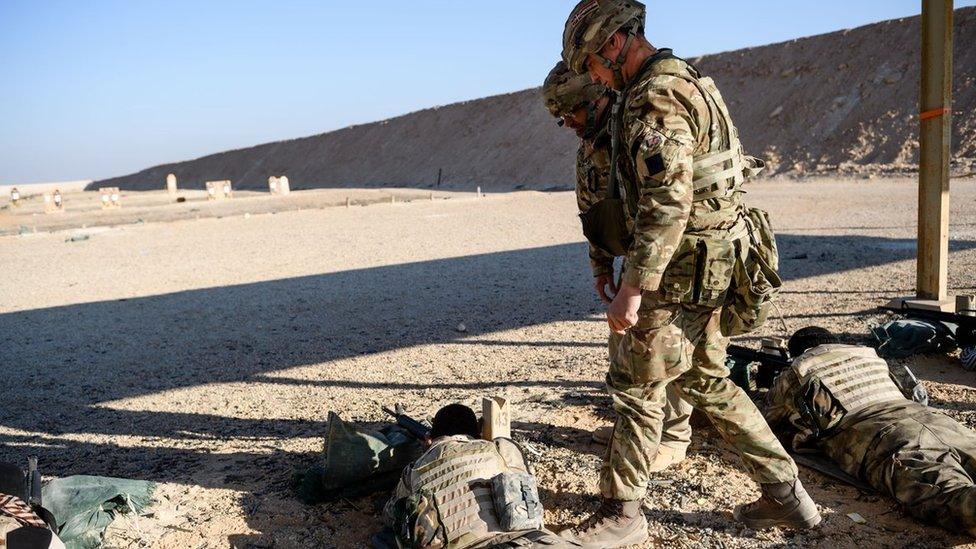
British troops continue their training and mentoring mission in Iraq
Maj Gen Jones said the Iraqi forces have done an "impressive" job during the battle for Mosul. "They have been dealing with the situation in a very professional manner, which helped manage those who escaped."
Stability in Iraq
Hugh Williams asked whether the Iraqi forces have the capability to restore order, maintain security and prevent IS from returning.
The Iraqi army is "well capable" of restoring peace and stability to Iraqi towns and cities, said Maj Gen Jones, who added that Iraqi forces so far have managed to control the towns liberated from IS.
"What is really powerful about this campaign is, that it is fought by the Iraqi forces and not some Western power. The campaign is by, with and through our partners," he said.
"This gives the Iraqi prime minister and the security forces enormous legitimacy to follow through on the post-Daesh period. Our focus is on supporting them defeat Daesh."
The major general emphasised the "impressive collaboration" between the Iraqi forces and the Kurdish Peshmerga, particularly on the security side.
"We helped train the Kurdish forces and they have been an important part in the fight against Daesh."

Produced by UGC and Social News team.
- Published25 February 2017
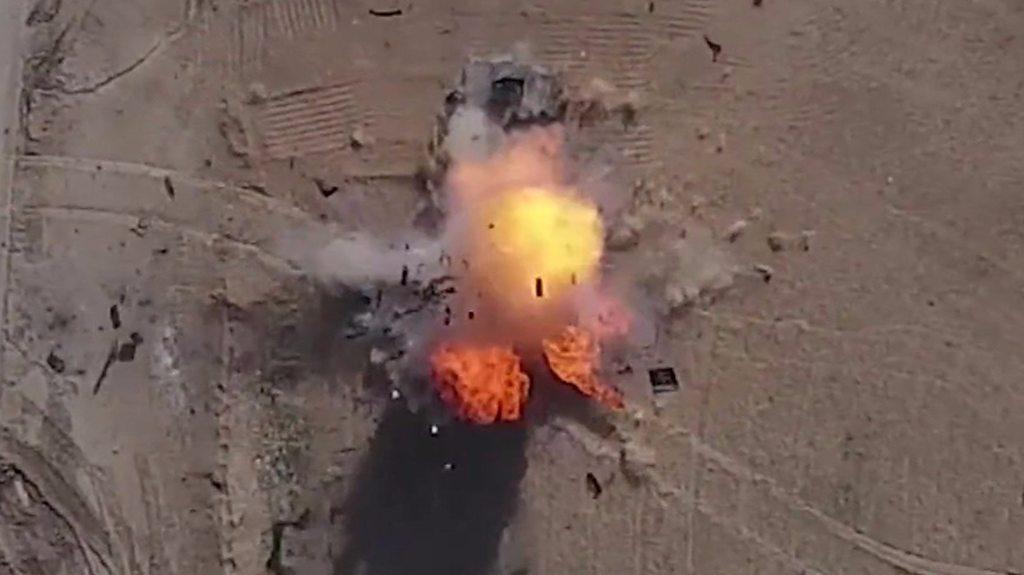
- Published23 February 2017
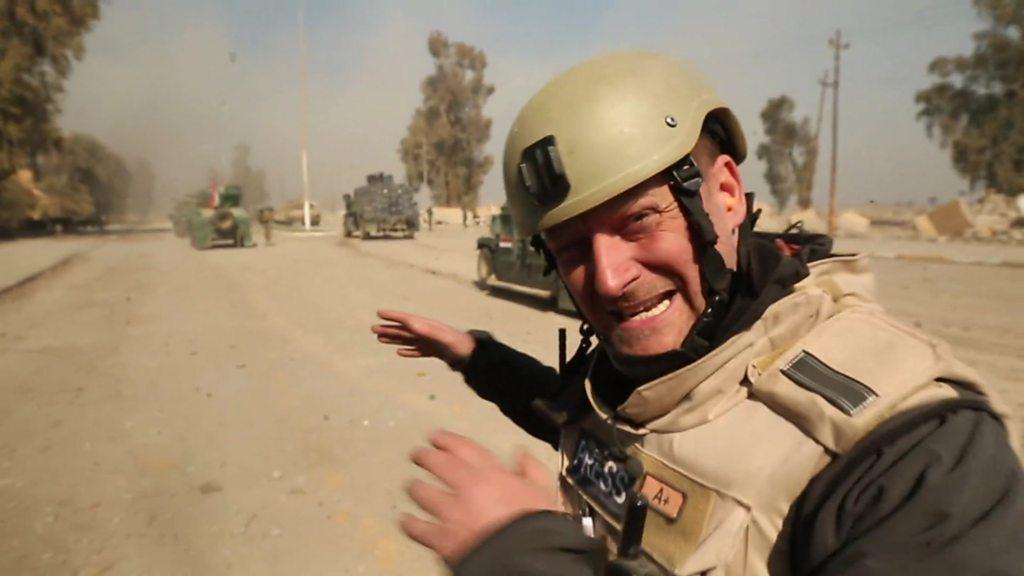
- Published21 February 2017
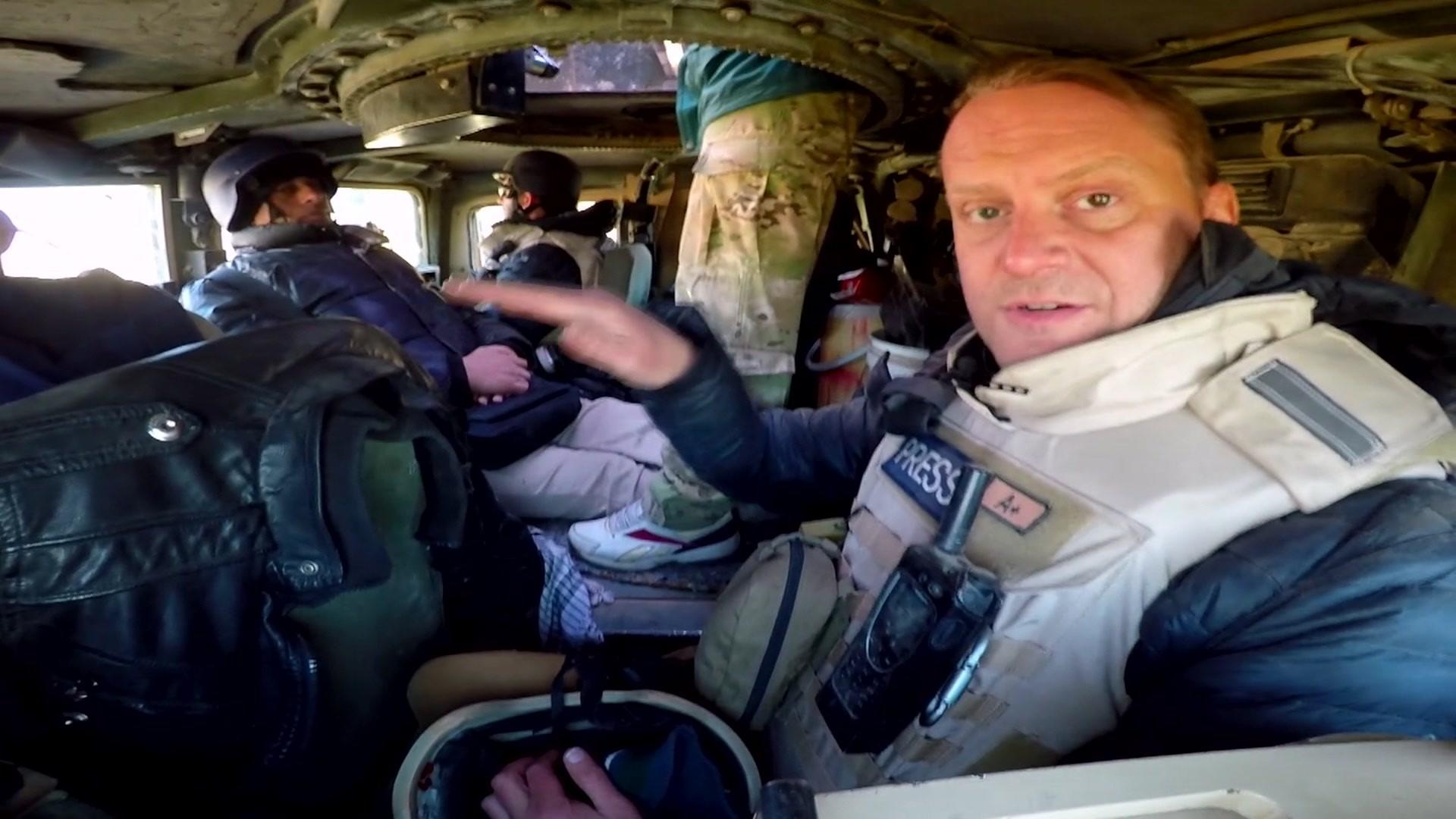
- Published20 February 2017
